117 items found: Search results for "red cross" in all categories x


July 11, 2017 | Cloud, Cloud Native
Over the years, OpenCredo’s projects have become increasingly tied to the public cloud. Our skills in delivering cloud infrastructure and cloud native applications have deepened and the range of cloud projects we are able to take on has grown. From enterprise cloud brokers to cloud platform migration in restricted compliance environments, our ability to deliver on the cloud is now a core component of our value proposition.





March 3, 2016 | Software Consultancy
In this post, I’ll be sharing some React/Redux boilerplate code that Vince Martinez and I have been developing recently. It’s primarily aimed at developers who are familiar with the React ecosystem, so if you are new to React and/or Redux, you might like to have a look at Getting Started with React and Getting Started with Redux.


January 30, 2016 | Microservices
The OpenCredo team will be presenting two sessions on our recent learnings with implementing microservices at the OOP Conference, which will be running from the 1st – 5th February. We will also be running a booth, and so if you are interested in learning more about our recent projects, are keen to see if we can help you with your latest technical or organisational challenges, or want to join our team, then stop by and say hello!
![Microservice Platforms: Some Assembly [Still] Required. Part Two](https://opencredo.com/wp-content/uploads/2018/10/banner-services-895x196.jpg)
![Microservice Platforms: Some Assembly [Still] Required. Part Two](https://opencredo.com/wp-content/uploads/2018/10/banner-services-360x312.jpg)
September 20, 2015 | Microservices
Over the past five years I have worked within several projects that used a ‘microservice’-based architecture, and one constant issue I have encountered is the absence of standardised patterns for local development and ‘off the shelf’ development tooling that support this. When working with monoliths we have become quite adept at streamlining the development, build, test and deploy cycles. Development tooling to help with these processes is also readily available (and often integrated with our IDEs). For example, many platforms provide ‘hot reloading’ for viewing the effects of code changes in near-real time, automated execution of tests, regular local feedback from continuous integration servers, and tooling to enable the creation of a local environment that mimics the production stack.




August 11, 2015 | DevOps
For years, OpenCredo has been working with organisations to help them introduce new technologies, and more effective development practices, to their IT teams. This has met with a great deal of success, and we have worked with a variety of companies of various sizes. During these projects, we have consistently noticed that the changes we make reach beyond IT in their impact and effects.


August 5, 2015 | Cloud, GCP, Kubernetes
Why OpenCredo partnered with Google
Recently OpenCredo chose to partner with Google in order to share knowledge and resources around the Google Cloud Platform offerings. Our clients come in many shapes and sizes, but typically all of them realise three disruptive truths of the modern IT industry: the (economic) value of cloud; the competitive advantage of continuous delivery; and the potential of hypothesis and data-driven product development to increase innovation (as popularised by the Lean Startup / Lean Enterprise motto of ‘build, measure, learn’).




September 19, 2013 | Software Consultancy
This post will give an overview of mobile testing using Appium. We will integrate tests for a native Android application into an existing Cucumber-JVM based set of acceptance tests and demonstrate multi platform testing from a single set of BDD scenarios. The sample code for this can be found here.




August 16, 2012 | Neo4j
 It’s been more than a year now since I rolled out Neo4j Graph Database Server image in Amazon EC2.
It’s been more than a year now since I rolled out Neo4j Graph Database Server image in Amazon EC2.
In May 2011 the version of Neo4j was 1.3 and just recently guys at Neo Technology published version 1.7.2 so I thought now is the time to revisit this exercise and make fresh AMIs available.
Last year I created Neo4j AMI manually in one region then copied it across to the remaining AWS regions. Due to the size of the AMI and the latency between regions this process was slow.


News | November 24, 2010


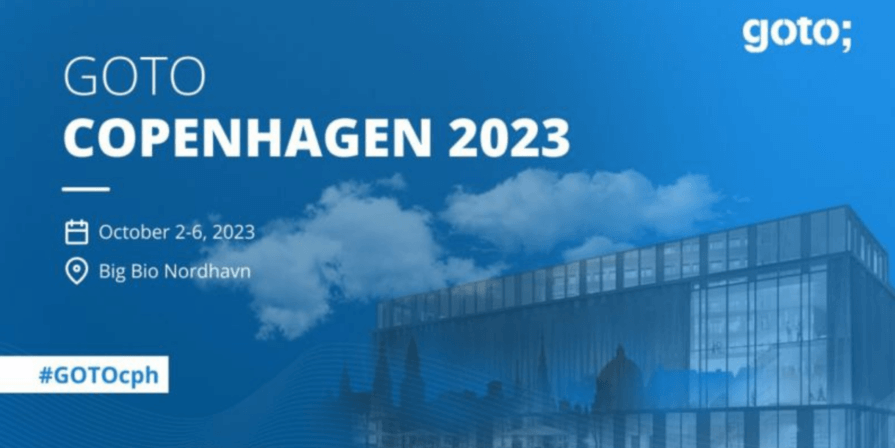

March 14, 2024 | Blog, Data Engineering, Platform Engineering
Watch the recording of our Technical Delivery Director, James Bowkett from the GOTO Copenhagen 2023 conference for his talk ‘The 12 Factor App For Data’
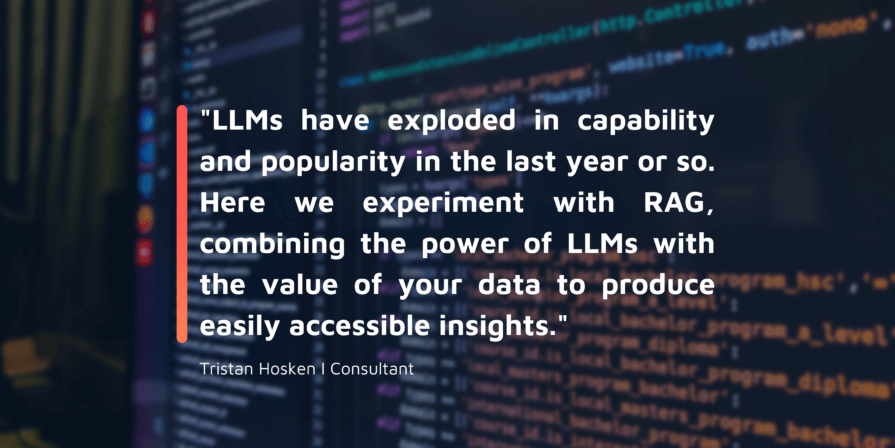
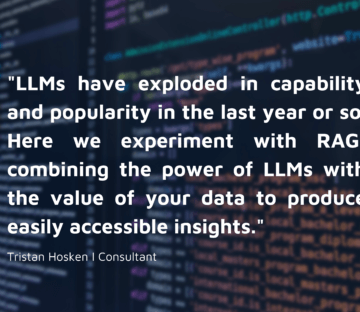
February 6, 2024 | AWS, Blog, OPA
Check out the latest blog by our Consultant, Tristan Hosken, as he explores Retrieval Augmented Generation (RAG). Tristan provides insights into advantages and disadvantages of RAG through hands-on experiments with AWS’s Bedrock and Azure’s OpenAI service.
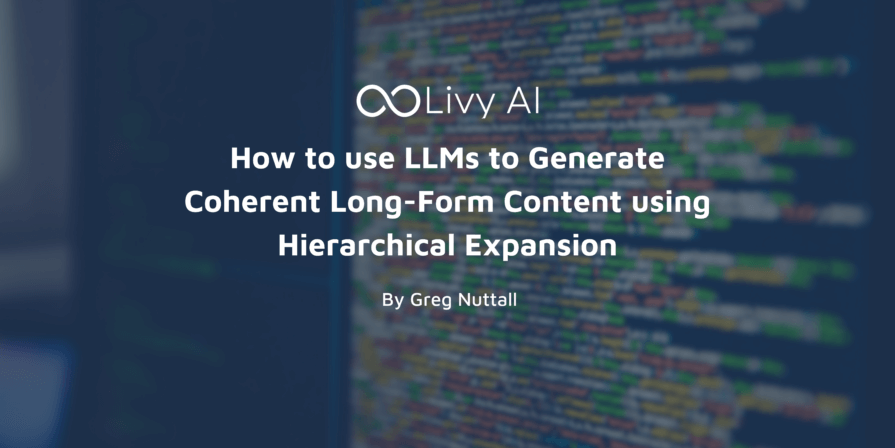
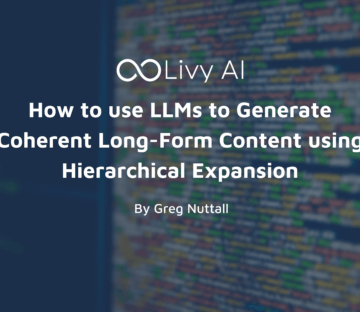
October 30, 2023 | Blog
As impressive as they are, Large Language Models (LLMs) face difficulties when creating long-form content, primarily due to token limitations and inconsistencies in the output over time.
Together with Livy.ai, we developed a “Hierarchical Expansion” method to address these challenges and better the quality, flow, and structure of the content produced. Read further to learn more!
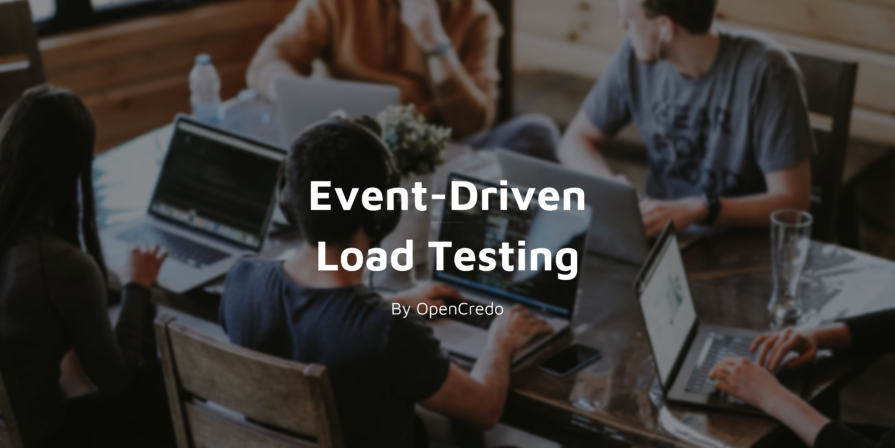
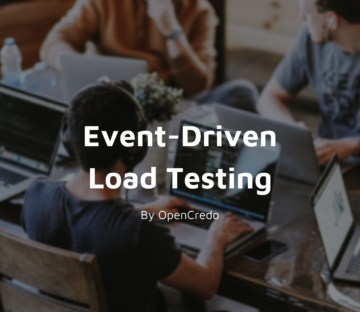
October 12, 2023 | Blog, Platform Engineering
Check out our latest blog “Event Driven Load Testing” which explores how, through some smart automation techniques, testing strategies can be adapted to support scale-up organisations where there are potentially many disparate teams needing to work together.
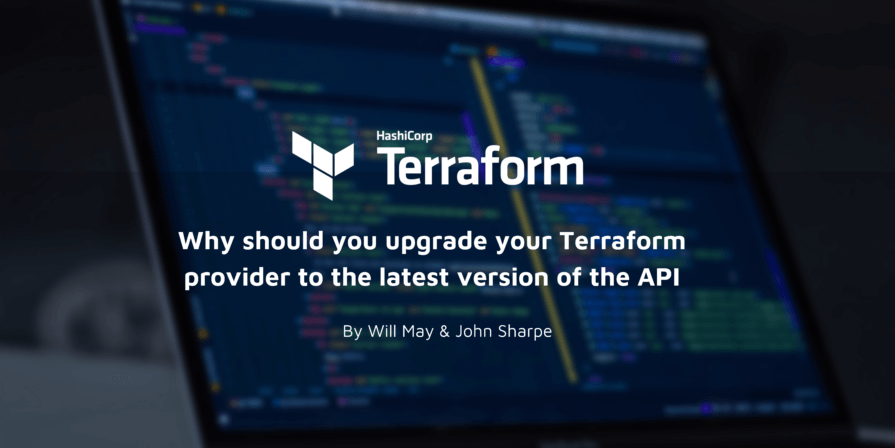
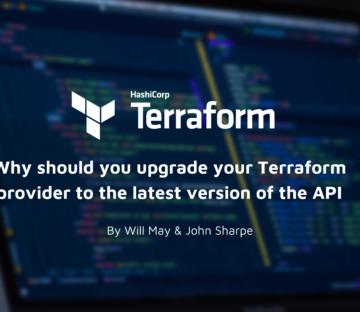
August 17, 2023 | Blog, Terraform Provider
Check out John Sharpe and Will May’s latest blog where they give suggestions for Terraform Provider authors who are thinking about upgrading from SDKv2 to Framework
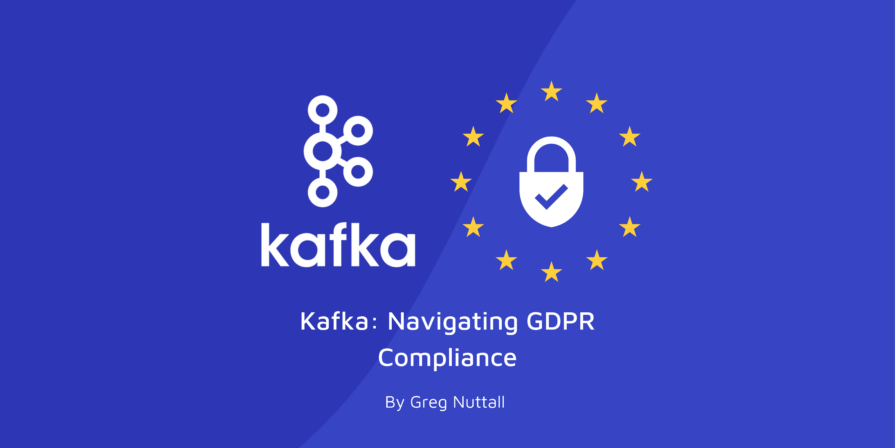
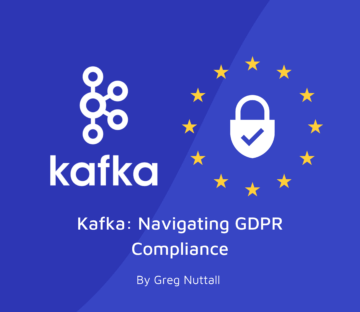
Check out Greg Nuttall’s latest blog where he looks at the challenges posed by GDPR’s “Right to be Forgotten” in the context of Apache Kafka, and delves deeper into three strategies for overcoming them.


March 29, 2023 | Blog, Kubernetes, Platform Engineering
Watch the recording of our CEO/CTO, Nicki Watt from the State of Open Conference on her talk “Internal Developer Platforms – Of the people, By the people, For the people.”
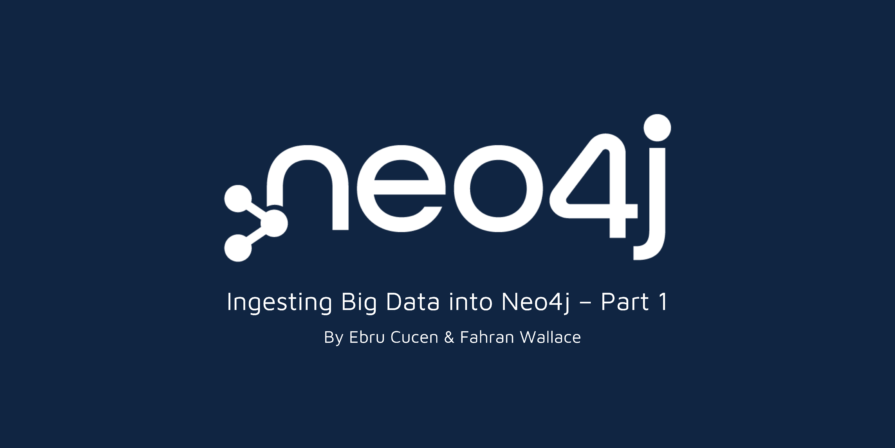
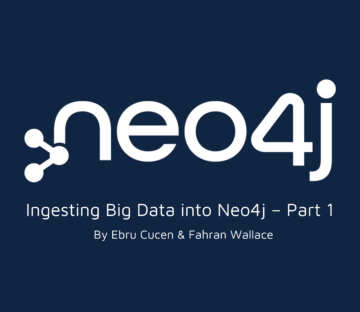
January 26, 2023 | Blog, Data Analysis, Neo4j
Fahran Wallace and Ebru Cucen’s most recent blog post is part 1 of a three-part series. They investigate how OpenCredo ingested 400 million nodes with a billion relationships into Neo4j.
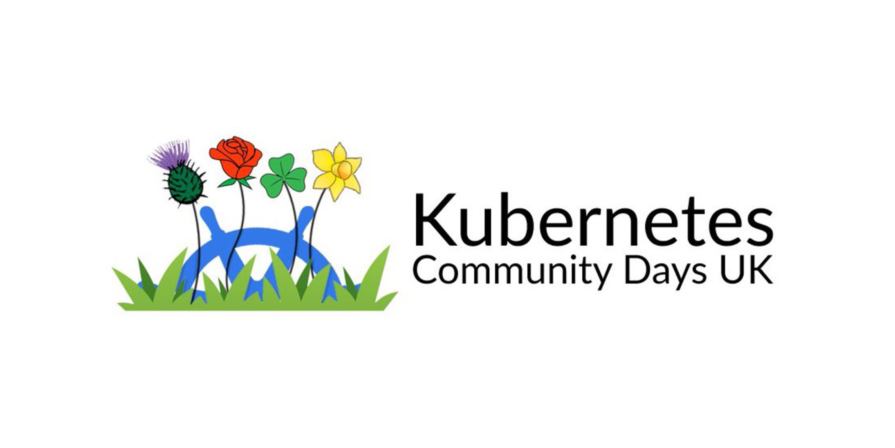
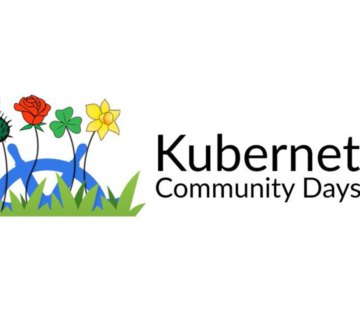
December 8, 2022 | Blog, Kubernetes, Platform Engineering
Watch the recording of our CEO/CTO, Nicki Watt from the Kubernetes Community Days on her talk “Kubernetes-based platforms – of the people, by the people, for the people.”


December 7, 2022 | Blog, Data Analysis
Learn more about data processing and analytics, which are essential systems in modern enterprises but are frequently overlooked aspects of modern data architectures, by reading Mateus Pimenta’s latest blog.

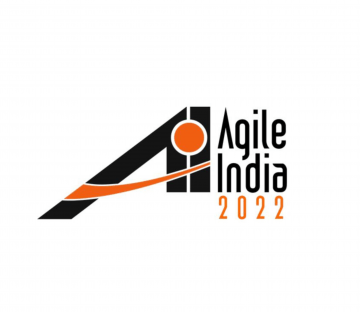
October 18, 2022 | Blog, Organisational Transformation, Software Consultancy
Watch Simon Copsey’s talk from the Agile India Conference on “Systems Thinking for Happy Staff and Elated Customers.”

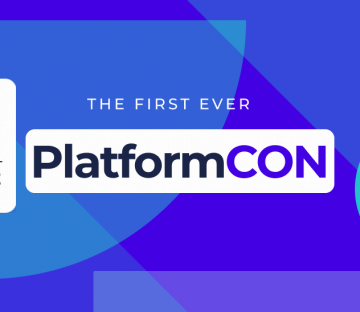
May 26, 2022
Our CEO/CTO Nicki Watt shares about her upcoming talk at PlatformCon 2022.


May 24, 2022 | Software Consultancy
Watch Simon Copsey’s talk from the Agile Ex Meetup on “Coaching at the Organisational Level” where he explores some of the common downward spirals in IT and the larger organisation, as well as the tools that coaches and individuals can use to surface and discuss them in a way that allows for systemic change, even without formal authority.


May 5, 2022 | Culture, Software Consultancy
Watch Simon Copsey’s talk from the Agnostic Agile Meetup on “Systems Thinking for Happy Staff and Elated Customers.”


January 31, 2022 | Blog, Data Engineering
There are two camps of Graph database, one side is RDF, where they are strict with their format, and somewhat limited for their extensibility. The other side is LPG, where they can define labels to the relationships. With its recent extension, RDF now allows users to add properties, thus becoming RDF*. In this blog, Ebru explores the structural and performance differences between LPG and RDF*.


November 4, 2021 | Kubernetes
We always read that ‘security is everyone’s responsibility’. For any organisation, big or small, security should always be the primary concern—not a mere afterthought. In terms of Kubernetes, securing a cluster is challenging because it has so many moving parts and, apart from securing our Kubernetes environment, we also want to control what an end-user can do in our cluster.
To achieve these goals, we can start with the built-in features provided by Kubernetes like Role-Based Access Control (RBAC), Network Policies, Secrets Management, and Pod Security Policies (PSP). But we know these features are not enough. For example, we may want specific policies like ‘all pods must have specific labels’. And even if we have the policies in place, the next big question is how to enforce them on our Kubernetes cluster in an easy and repeatable manner.
In this blog post, we’ll address this challenge and other questions pertaining to OPA and how it can integrate into Kubernetes.


September 2, 2021 | Blog, Cloud, Kubernetes
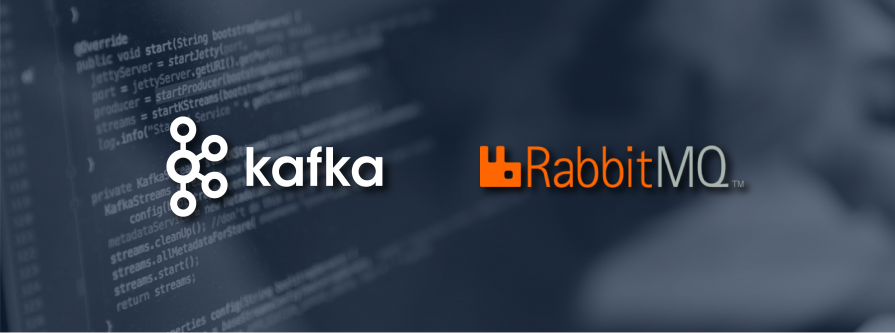
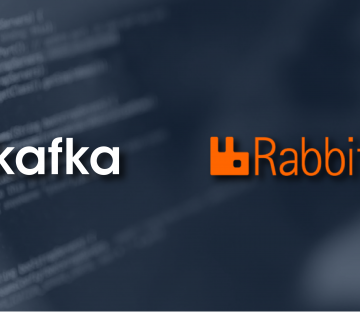
July 20, 2021 | Blog, Data Engineering, Kafka
Message and event-driven systems provide an array of benefits to organisations of all shapes and sizes. At their core, they help decouple producers and consumers so that each can work at their own pace without having to wait for the other – asynchronous processing at its best.
In fact, such systems enable a whole range of messaging patterns, offering varying levels of guarantees surrounding the processing and consumption options for clients. Take for example the publish/subscribe pattern, which enables one message to be broadcast and consumed by multiple consumers; or the competing consumer pattern, which enables a message to be processed once but with multiple concurrent consumers vying for the honour—essentially providing a way to distribute the load. The manner in which these patterns are actually realised however, depends a lot on the technology used, as each has its own approach and unique tradeoffs.
In this article we will explore how this all applies to RabbitMQ and Apache Kafka, and how these two technologies differ, specifically from a message consumer’s perspective.

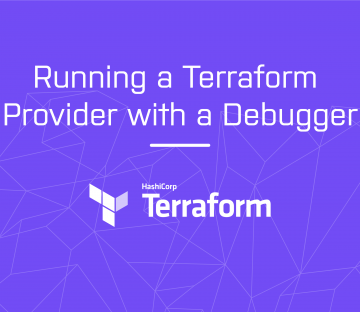
May 19, 2021 | DevOps, Hashicorp, Open Source, Terraform Provider
Developing a Terraform provider is a great thing for a company to do as it allows customers to quickly integrate a product with their existing systems with very little friction. During development, occasionally there might be bugs and issues to fix, and it can be quite difficult to work out what is causing them. In this post, I outline how you can attach a debugger such as Delve to a Terraform provider to save time when solving these issues.
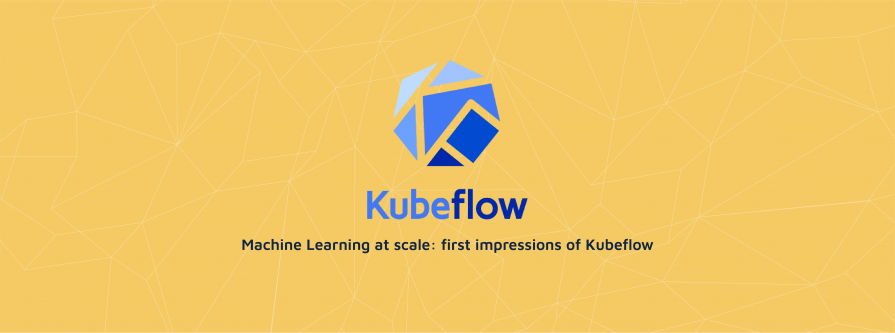
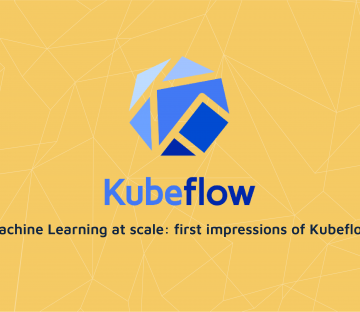
April 20, 2021 | Data Engineering, Machine Learning, Software Consultancy
Our recent client was a Fintech who had ambitions to build a Machine Learning platform for real-time decision making. The client had significant Kubernetes proficiency, ran on the cloud, and had a strong preference for using free, open-source software over cloud-native offerings that come with lock-in. Several components were spiked with success (feature preparation with Apache Beam and Seldon for model serving performed particularly strongly). Kubeflow was one of the next technologies on our list of spikes, showing significant promise at the research stage and seemingly a good match for our client’s priorities and skills.
That platform slipped down the client’s priority list before completing the research for Kubeflow, so I wanted to see how that project might have turned out. Would Kubeflow have made the cut?
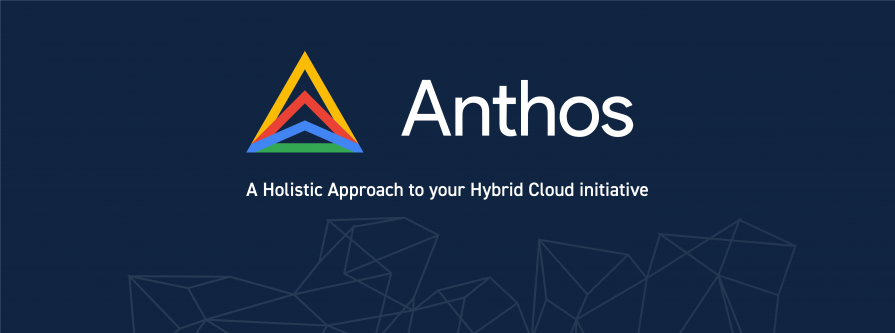
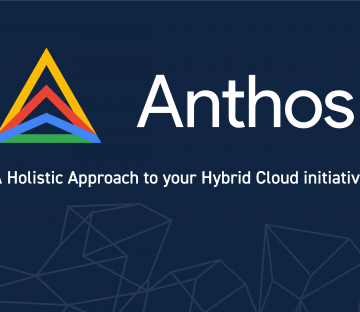
February 17, 2021 | Blog, Cloud, Cloud Native, GCP, Open Source
Multi-cloud is rapidly becoming the cloud strategy of choice for enterprises looking to modernise their applications.
And the reason is simple – it gives them much more flexibility to host their workloads and data where it suits them best.
In this post, we focus on Google’s application modernisation solution Google Anthos and the role it can play in your cloud transformation strategy.

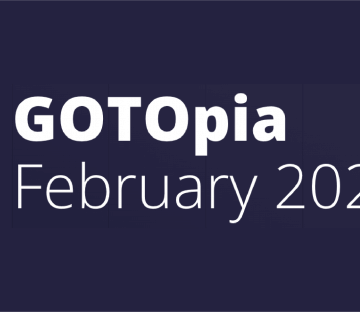
February 9, 2021 | Cloud Native, DevOps, Kubernetes
Watch Nicki Watt’s talk on Platform Engineering as a (Community) Service at GOTOpia to learn what it takes to build a platform that is fit to serve the communities which will ultimately use it.
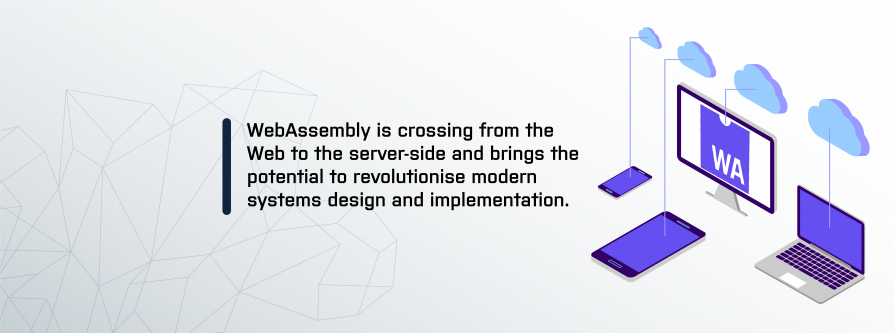
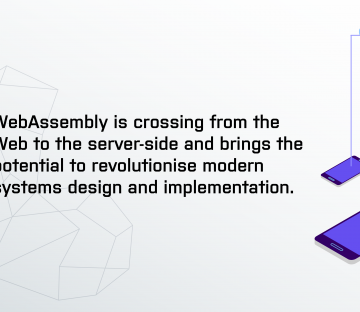
December 11, 2020 | Cloud, Cloud Native, Kubernetes, Microservices
“WebAssembly is a safe, portable, low-level code format designed for efficient execution and compact representation.” – W3C
In this blog, I’ll cover the different applications of Wasm and WASI, some of the projects that are making headway, and the implications for modern architectures and distributed systems.
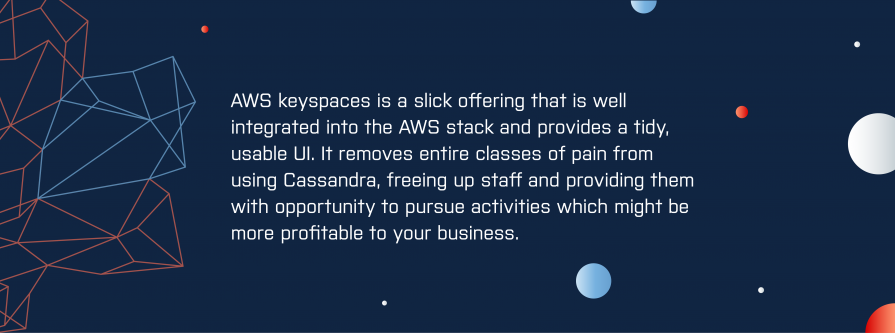
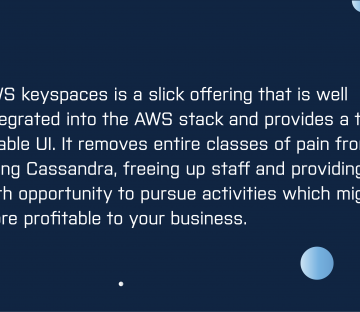
September 22, 2020 | AWS, Blog, Cassandra, Cloud, DevOps, Open Source
With the upcoming Cassandra 4.0 release, there is a lot to look forward to. Most excitingly, and following a refreshing realignment of the Open Source community around Cassandra, the next release promises to focus on fundamentals: stability, repair, observability, performance and scaling.
We must set this against the fact that Cassandra ranks pretty highly in the Stack Overflow most dreaded databases list and the reality that Cassandra is expensive to configure, operate and maintain. Finding people who have the prerequisite skills to do so is challenging.

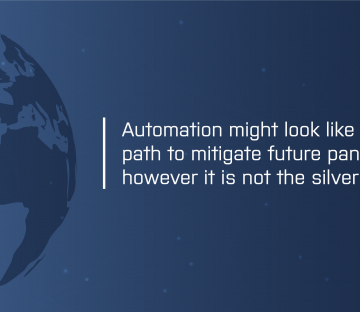
At the time of this post, the UK is making steps to exit from an unprecedented lockdown measures for the Coronavirus. Much of the UK workforce are still making efforts to work-from-home with mainly key workers operating – at risk – in public. Many industries have shut down completely. Consequently, many businesses are reflecting on what happens next and how do we better mitigate future pandemic events?


March 20, 2020
Traditionally, Usability and Security have been set in opposition to each other: with tight security, we end up with painful user experience. In this blog, Guy focuses on financial services as an exemplar of how we can introduce usability into a vertical with challenging security and compliance requirements.


November 13, 2019 | Software Consultancy
Pioneering and pushing technology boundaries – pretty much a given nowadays for the software-driven startup. Here are some insights we’ve observed working with a number of venture capital (VC) companies who have managed to navigate the choppy waters and successfully grow their business including winning further investment along the way.
With our deep hands-on technical expertise and pragmatic focus, OpenCredo has become a natural software acceleration partner for VC funded organisations who are looking to deliver tangible value as effectively as possible. We’ve been brought in to work alongside these innovators at various stages of their journey. As such we’ve gained an appreciation for and acquired, first-hand insight into some of the pressures and challenges faced. From getting and securing that next round of funding, to grappling with the technical decisions and challenges inherent in sensibly evolving offerings to accommodate future growth and scaling.
This blog is written exclusively by the OpenCredo team. We do not accept external contributions.


October 3, 2019
Continuing on from Stuart’s previous blog which covered highlights from CloudNative London conference day 1, I have put together a summary for day 2.
Being an OCer (OpenCredo employee) has given me the opportunity to fully embed myself in the London technology scene. Alongside our direct engagements with clients, it is a chance to understand and evaluate the trends and lessons that have emerged over the past year.
For conferences and technical content, London is a very crowded location. Every day it seems like a new conference is being announced and I know I cannot attend them all, no matter how much I want too! Alongside some of my other colleagues, I was given the option to attend the Skillsmatter CloudNative London conference and with the increase of organisations embracing the dynamic and transformative benefits offered by an ever-growing choice of cloud providers, it seemed like a good fit.

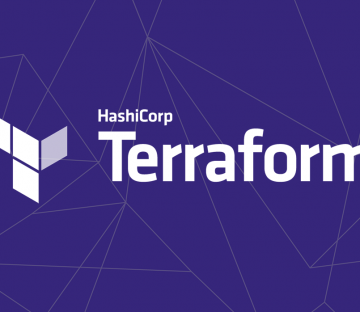
October 3, 2019 | Cloud, DevOps, Hashicorp, Open Source
Terraform 0.12 in recent years has emerged as the de facto standard with regards to defining and managing cloud infrastructure. It is one of four primary tools offered by HashiCorp, (Terraform, Vault, Consul and Nomad) and underpins the workflows that make up their Cloud Operating Model.
Since its first release in 2014, the wider Terraform community has embraced frequent releases and this past year has been no exception. HashiCorp announced the release of Terraform 0.12 in May 2019 and as of writing this post the official release is 0.12.9.


August 14, 2019 | Culture, News
Here, in our little nook of the internet, we usually write about our experiences of emerging technologies, the tricky coding problems we’ve solved and how we have enhanced our clients’ businesses. We do this because we are very proud of this work. It truly matters.
Today is a little different. Today I’d like to share something a little more personal. Something that brings loneliness, kindness and technology together in an oxytocin-generating, slightly awkward embrace. Because hugs matter too.


Writing your own Kafka source connectors with Kafka Connect. In this blog, Rufus takes you on a code walk, through the Gold Verified Venafi Connector while pointing out the common pitfalls


February 5, 2019 | Cloud Native, DevOps, Kubernetes, Microservices, Open Source
While Prometheus has fast become the standard for monitoring in the cloud, making Prometheus highly available can be tricky. This blog post will walk you through how to do this using the open source tool Thanos.


August 29, 2018 | Software Consultancy
My last year or so here at OpenCredo has involved a very well-supported first foray into tech consultancy. Different engagements pose both unique, as well as familiar challenges for me as a consultant, all of which played a part in shaping and moulding the way I understand and approach problems. This blog is a brief collation of wisdom that’s helped me the most during this adventure; gained by learning the hard way, as well as that acquired from mentoring and colleagues who have gone before. The shared wisdom has made me a much more effective consultant, and kept me sane in the process, for which I’m very thankful.


July 31, 2018 | Machine Learning
Machine Learning, alongside a mature Data Science, will help to bring IT and business closer together. By leveraging data for actionable insights, IT will increasingly drive business value. Agile and DevOps practices enable the continuous delivery of business value through productionised machine learning models and software delivery.


May 16, 2018 | Microservices
To identify service boundaries, it is not enough to consider (business) domains only. Other forces like organisational communication structures, and – very important – time, strongly suggest that we should include several other criteria in our considerations.
Join us for Devoxx UK 2018! We are excited to announce that we are sponsoring and speaking at Devoxx UK 2018. Devoxx is a conference by developers, for developers. Conference Tracks include: Cloud, Containers & Infratructure Big Data & AI Architecture Server Side Java Modern Web Programming Languages Security and much more… Multi Env Deploys […]
We are excited to announce that our Lead Consultant, Pergerto Fernandez is presenting at Kafka Summit London 2018! Kafka Summit is the premier event for data architects, engineers, devops professionals, and developers who want to learn about streaming data.


April 18, 2018 | Microservices
Quite a few of the anti-patterns we observe today on microservices projects are strongly related to how people approach the problem. Given their nature, these anti-patterns tend to be deeply ingrained and self-sustaining. Addressing them starts with increased awareness and by changing ways of approaching the problem, rather than by the introduction of yet another technical tool or framework.


March 14, 2018 | Data Engineering, Microservices
Events are obviously the fundamental building block of event-sourced systems. Commands are equally a common concept in such systems although the distinction between events and commands, if any, is not always clear. There are certainly varying views on what role each one should play.


January 23, 2018 | Data Engineering, DevOps
Machine Learning is a hot topic these days, as can be seen from search trends. It was the success of Deepmind and AlphaGo in 2016 that really brought machine learning to the attention of the wider community and the world at large.


August 8, 2017 | Cassandra
Recently, the sad news has emerged that Basho, which developed the Riak distributed database, has gone into receivership. This would appear to present a problem for those who have adopted the commercial version of the Riak database (Riak KV) supported by Basho.
This blog is written exclusively by the OpenCredo team. We do not accept external contributions.


June 15, 2017 | Data Engineering
CockroachDB is a distributed SQL (“NewSQL”) database developed by Cockroach Labs and has recently reached a major milestone: the first production-ready, 1.0 release. We at OpenCredo have been following the progress of CockroachDB for a while, and we think it’s a technology of great potential to become the go-to solution for a having a general-purpose database in the cloud.


April 13, 2017 | Terraform Provider
Recently I’ve been doing a lot with Terraform; having briefly flirted with it in the past, it’s only now with v0.8.x that I’ve been seriously stepping out with it (and Azure, since you asked). In the main I think it’s great, especially as it means I don’t have to yak-shave with the AWS and Azure CLIs. However, I have started to bang my head against some of Terraform’s limitations, specifically around HCL (Hashicorp Configuration Language) – used to define infrastructure in the Terraform .tf files.




March 23, 2017 | Cassandra, Data Analysis, Data Engineering
In recent years, Cassandra has become one of the most widely used NoSQL databases: many of our clients use Cassandra for a variety of different purposes. This is no accident as it is a great datastore with nice scalability and performance characteristics.
However, adopting Cassandra as a single, one size fits all database has several downsides. The partitioned/distributed data storage model makes it difficult (and often very inefficient) to do certain types of queries or data analytics that are much more straightforward in a relational database.


March 20, 2017 | DevOps
DevOps has swept the tech landscape. Now, many are discovering the benefits of programmable infrastructure. I have been lucky to work on many projects where we’ve taken advantage of tools such as Terraform, Ansible, or Chef.
We are pleased to announce that we are sponsors of QCon 2017, where our Lead Consultant, Rafal Gancarz and Consultant Matt Long will be speaking. Our Chief Scientist, Daniel Bryant will also be hosting the track: Observability Done Right – Automating Insight & Software Telemetry.
Drawing on over 6 years of practical experience from the OpenCredo team, you will explore worked examples and learn clear lessons in test automation and agile development. The workshop is ideal for members of development teams working to integrate testing, as well as product owners and business analysts who need a better way of communicating their business objectives. The results will be clearer requirements, faster test feedback, and increased confidence in software quality.


February 16, 2017 | Cassandra
One of the default Cassandra strategies to deal with more sophisticated queries is to create CQL tables that contain the data in a structure that matches the query itself (denormalization). Cassandra 3.0 introduces a new CQL feature, Materialized Views which captures this concept as a first-class construct.


February 13, 2017 | Data Engineering
One of the stated intentions behind the design of Java 8’s Streams API was to take better advantage of the multi-core processing power of modern computers. Operations that could be performed on a single, linear stream of values could also be run in parallel by splitting that stream into multiple sub-streams, and combining the results from processing each sub-stream as they became available.
Join Andrew Morgan and Daniel Bryant at OOP Conference 2017! By combining software and business, OOP Conference 2017 is the meeting point for people who work primarily in the enterprise environment. Technical experts (architects, developers, business analysts, and testers), technical (project) managers and leaders gain an excellent view on the state-of-the-art in modern software engineering. […]


January 26, 2017 | Data Engineering
Suppose you are given the task of writing code that fulfils the following contract:
This blog is written exclusively by the OpenCredo team. We do not accept external contributions.


January 25, 2017 | Cassandra
One of the simplest and best-understood models of computation is the Finite State Machine (FSM). An FSM has fixed range of states it can be in, and is always in one of these states. When an input arrives, this triggers a transition in the FSM from its current state to the next state. There may be several possible transitions to several different states, and which transition is chosen depends on the input.


January 24, 2017 | Cloud
This blog aims to provide an end to end example of how you can automatically request, generate and install a free HTTPS/TLS/SSL certificate from Let’s Encrypt using Terraform. Let’s Encrypt is a free, automated, and open certificate authority (CA) aiming to make it super easy (and free – did I say free!) for people to obtain HTTPS (SSL/TLS) certificates for their websites and infrastructure. Under the hood, Let’s Encrypt implements and leverages an emerging protocol called ACME to make all this magic happen, and it is this ACME protocol that powers the Terraform provider we will be using. For more information on how Let’s Encrypt and the ACME protocol actually work, please see how Let’s Encrypt works.


January 23, 2017 | Data Analysis
More often than not, people who write Go have some sort of opinion on its error handling model. Depending on your experience with other languages, you may be used to different approaches. That’s why I’ve decided to write this article, as despite being relatively opinionated, I think drawing on my experiences can be useful in the debate. The main issues I wanted to cover are that it is difficult to force good error handling practice, that errors don’t have stack traces, and that error handling itself is too verbose.
GOTO London is back for the second year running to throw another great conference! Creating a meeting place for software innovators and thought leaders from startups and enterprises, GOTO London will give you the opportunity to network with people all across different disciplines of software development! With 1 days workshops where attendees can go into depth with […]


October 13, 2016 | Data Analysis
In Lisp, you don’t just write your program down toward the language, you also build the language up toward your program. As you’re writing a program you may think “I wish Lisp had such-and-such an operator.” So you go and write it. Afterward you realize that using the new operator would simplify the design of another part of the program, and so on. Language and program evolve together…In the end your program will look as if the language had been designed for it. And when language and program fit one another well, you end up with code which is clear, small, and efficient – Paul Graham, Programming Bottom-Up
Join Daniel Bryant and Andrew Morgan at Jax London 2016 this year on the 11th of October!
Hear from OpenCredo’s experts in this live Webinar working through best practise and common sense approaches to building out a successful Cassandra cluster, gained through experience working with clients in designing and deploying Cassandra across a wide range of business domains. Learn from them how you can make the very best of your cluster in a real world setting. […]


October 4, 2016 | Software Consultancy
As many of you know, OpenCredo are part of the global Trifork family, and as such have access to the combined knowledge and experience of many technology and business leaders throughout the group. Getting public access to all of this expertise and technical leadership can be tricky – until now. GOTO Accelerate is a one-day business focused conference that has emerged from the very successful GOTO technology events.


September 27, 2016 | Cassandra, Data Engineering
If there is one thing to understand about Cassandra, it is the fact that it is optimised for writes. In Cassandra everything is a write including logical deletion of data which results in tombstones – special deletion records. We have noticed that lack of understanding of tombstones is often the root cause of production issues our clients experience with Cassandra. We have decided to share a compilation of the most common problems with Cassandra tombstones and some practical advice on solving them.


September 15, 2016 | Cassandra
Cassandra isn’t a relational database management system, but it has some features that make it look a bit like one. Chief among these is CQL, a query language with an SQL-like syntax. CQL isn’t a bad thing in itself – in fact it’s very convenient – but it can be misleading since it gives developers the illusion that they are working with a familiar data model, when things are really very different under the hood.


September 6, 2016 | Cassandra
A growing number of clients are asking OpenCredo for help with using Apache Cassandra and solving specific problems they encounter. Clients have different use cases, requirements, implementation and teams but experience similar issues. We have noticed that Cassandra data modelling problems are the most consistent cause of Cassandra failing to meet their expectations. Data modelling is one of the most complex areas of using Cassandra and has many considerations.


August 24, 2016 | Cassandra
At OpenCredo we are seeing an increase in adoption of Apache Cassandra as a leading NoSQL database for managing large data volumes, but we have also seen many clients experiencing difficulty converting their high expectations into operational Cassandra performance. Here we present a high-level technical overview of the major strengths and limitations of Cassandra that we have observed over the last few years while helping our clients resolve the real-world issues that they have experienced.


July 3, 2016 | DevOps
Several of us from the OpenCredo team were in attendance at the inaugural EU edition of the DevOps Enterprise Summit conference. We have been big fans of the two previous US versions, and have watched the video recordings of talks (2014, 2015) with keen interest as many of our DevOps transformation clients are very much operating in the ‘enterprise’ space.


June 3, 2016 | Software Consultancy
In this post, I’m going to take something extremely simple, unfold it into something disconcertingly complex, and then fold it back into something relatively simple again. The exercise isn’t entirely empty: in the process, we’ll derive a more powerful (because more generic) version of the extremely simple thing we started with. I’m describing the overall shape of the journey now, because programmers who don’t love complexity for its own sake often find the initial “unfolding” stage objectionable, and then have trouble regarding the eventual increase in fanciness as worth the struggle.


April 5, 2016 | Software Consultancy
This post is part of a series which introduce key concepts in successful test automation. Each post contains sample code using the test-automation-quickstart project, a sample Java test automation framework available from Github.


March 29, 2016 | Software Consultancy
Acceptance test suites generally are used for UI and API testing, and we have covered both these approaches in our Test Automation Quickstart project. However, an application may, for example, send registration or expiration warning emails. Often, tests related to this are left to manual testing, instead of putting them into an automated test suite.
However, there’s no need to check emails manually: it suffers from all the same problems as other manual testing. It’s slow, expensive, and inconsistent. There are many libraries available to interact with email through code – this post will focus on how to use them within an automated test suite.


March 17, 2016 | Software Consultancy
In order to be able to regularly release an application, your automated tests must be set up to give you fast and reliable feedback loop. If bugs are only found during a long and expensive multi-service or end-to-end test run, it can be a hinderance to fast delivery. Unfortunately I have often seen this problem in development environments: a huge suite of clunky, flaky and slow end-to-end tests which test the full functionality of the application as opposed to being more lightweight and reflecting basic user journeys. This produces the “ice cream cone” anti-pattern of test coverage, where unit tests aren’t providing the kind of coverage and feedback they need to.


March 2, 2016 | DevOps, Microservices
Many of our clients are currently implementing applications using a ‘microservice’-based architecture. Increasingly we are hearing from organisations that are part way through a migration to microservices, and they want our help with validating and improving their current solution. These ‘microservices checkup’ projects have revealed some interesting patterns, and because we have experience of working in a wide-range of industries (and also have ‘fresh eyes’ when looking at a project), we are often able to work alongside teams to make significant improvements and create a strategic roadmap for future improvements.


March 2, 2016 | Microservices
Microservice-style software architectures have many benefits: loose coupling, independent scalability, localised failures, facilitating the usage of polyglot data persistence tools or multiple programming languages.
However, they also introduce other challenges. A major one is the fact that the end-user functionality of the system will ultimately emerge as a composition of multiple services. This significantly increases the complexity of deploying the system. In addition, because we lose the concept of “versions” of the system, it becomes harder to answer questions like “what capabilities are in production?” and “when is a new feature considered ‘done’?”.


November 23, 2015 | Software Consultancy
Over a year ago, my colleague Tristan posted on the OpenCredo blog about a test automation quick start framework. It’s a prepackaged framework you can clone and get going with testing instantly, rather than wasting your time rebuilding your framework every single project. We have used this framework successfully used on many of our internal projects, and it relies upon a Java, Cucumber-JVM and Selenium stack.


October 31, 2015 | Microservices
Over the past few weeks I’ve been writing an OpenCredo blog series on the topic of “Building a Microservice Development Ecosystem”, but my JavaOne talk of the same title crept up on me before I managed to finish the remaining posts. I’m still planning to finish the full blog series, but in the meantime I thought it would be beneficial to share the video and slides associated with the talk, alongside some of my related thinking. I’ve been fortunate to work on several interesting microservice projects at OpenCredo, and we’re always keen to share our knowledge or offer advice, and so please do get in touch if we can help you or your organisation.


October 18, 2015 | Cloud, DevOps
Last week Steve Poole and I were once again back at the always informative JAX London conference talking about DevOps and the Cloud. This presentation built upon our previous DevOps talk that was presented last year, and focused on the experiences that Steve and I had encountered over the last year (the slides for our 2014 “Moving to a DevOps” mode talk can be found on SlideShare, and the video on Parleys).


October 16, 2015 | Software Consultancy
OpenCredo is helping Skillsmatter with the organisation of the inaugural ContainerSched conference, and we were last night in attendance at CodeNode, working our way to finalising the program alongside the Skillsmatter team. I’m pleased to say that the provisional lineup looks great (speaker acceptance emails are being sent out over the next few days), and so I wanted to share the details of some of the great content we have confirmed already.


September 24, 2015 | Microservices
Unless you’ve been living under a (COBOL-based) rock for the last few years, you will have no doubt heard of the emerging trend of microservices. This approach to developing ‘loosely coupled service-oriented architecture with bounded contexts’ has captured the hearts and minds of many developers. The promise of easier enforcement of good architectural and design principles, such as encapsulation and interface segregation, combined with the availability to experiment with different languages and platforms for each service, is a (developer) match made in heaven.


September 14, 2015 | Cloud, DevOps
If you are operating in the programmable infrastructure space, you will hopefully have come across Terraform, a tool from HashiCorp which is primarily used to manage infrastructure resources such as virtual machines, DNS names and firewall settings across a number of public and private providers (AWS, GCP, Azure, …).


August 18, 2015 | Software Consultancy
In this post, the last in the New Tricks With Dynamic Proxies series (see part 1 and part 2), I’m going to look at using dynamic proxies to create bean-like value objects to represent records. The basic idea here is to have some untyped storage for a collection of property values, such as an array of Objects, and a typed wrapper around that storage which provides a convenient and type-safe access mechanism. A dynamic proxy is used to convert calls on getter and setter methods in the wrapper interface into calls which read and write values in the store.
July 28, 2015 | Microservices
Recently I co-presented a talk at Goto Amsterdam on lessons learnt whilst developing with a Microservices architecture; one being the importance of defining and documenting your API contracts as early as possible in the development cycle. During the talk I mentioned a few API documentation tools that I’d used and, based on feedback and questions from attendees, I realised that this topic merited a blog post. So, the purpose of this is to introduce 5 tools which help with designing, testing and documenting APIs.


July 13, 2015 | Software Consultancy
Why Use Dynamic Proxies?
Dynamic proxies have been a feature of Java since version 1.3. They were widely used in J2EE for remoting. Given an abstract interface, and a concrete implementation of that interface, a call to some method on the interface can be made “remote” (i.e. cross-JVM) by creating two additional classes. The first, a “marshalling” implementation of the interface, captures the details of the call in the source JVM and serializes them over the network. The second, an “unmarshalling” endpoint, receives the serialized call details and dispatches the call to an instance of the concrete class on the target JVM.


June 23, 2015 | Cloud, DevOps, Terraform Provider
Working with OpenCredo clients, I’ve noticed that even if you are one of the few organisations that can boast ‘Infrastructure as Code’, perhaps it’s only true of your VMs, and likely you have ‘bootstrap problems’. What I mean by this, is that you require some cloud-infrastructure to already be in place before your VM automation can go to work.


March 11, 2015 | Microservices
 One of the pain points experienced with developing microservices is that it often proves too cumbersome to replicate an environment for local development. This usually means the first time an application talks to its “real” dependencies is when it gets deployed to a shared testing environment. A relatively laborious continuous integration process usually precedes this deployment, making our feedback cycle longer than we would like. In this post I describe a workflow that aims to improve that, using Docker and Docker Compose (formerly known as fig).
One of the pain points experienced with developing microservices is that it often proves too cumbersome to replicate an environment for local development. This usually means the first time an application talks to its “real” dependencies is when it gets deployed to a shared testing environment. A relatively laborious continuous integration process usually precedes this deployment, making our feedback cycle longer than we would like. In this post I describe a workflow that aims to improve that, using Docker and Docker Compose (formerly known as fig).




January 30, 2015 | Software Consultancy
When I first started programming in Scala a few years ago, Traits was the language feature I was most excited about. Indeed, Traits give you the ability to compose and share behaviour in a clean and reusable way. In Java, we tend deal with the same concerns by grouping crosscutting behaviour in abstract base classes that are subsequently extended every time we need to access shared behaviour in part or in total.


November 21, 2014 | White Paper
In our latest white paper we cover the high level fundamentals of test automation, discuss the primary problems test automation solves and take a look at the steps required to implement this within your development process – all aimed at improving software delivery.
November 19, 2014 | Microservices
Undeniably, there is a growing interest in microservices as we see more organisations, big and small, evaluating and implementing this emerging approach. Despite its apparent novelty, most concepts and principles underpinning microservices are not exactly new – they are simply proven and commonsense software development practices that now need to be applied holistically and at a wider scale, rather than at the scale of a single program or machine. These principles include separation of concerns, loose coupling, scalability and fault-tolerance.


November 4, 2014 | Software Consultancy
When starting a project, teams often spend their time re-inventing the ‘automated testing wheel’. While every project has it’s own challenges and every team it’s own needs, many things exist as common requirements of a flexible test automation framework.
This post introduces an effective Java test framework that can be used to quickly get started with test automation on a Java project.


January 6, 2014 | Cassandra
The team over at Cucumber Pro recently posted a sneak peek on their blog, demonstrating some key features of their offering.
As more of a technical user of Cucumber, there isn’t much that’s new or ground-breaking for me – almost every feature is already available through your preferred IDE combined with a few plugins.


June 30, 2013 | Software Consultancy
Spring Data Hadoop (SDH) is a Spring offshoot project that allows the invocation and configuration of Hadoop tasks within a Spring application context. It offers support for Hadoop jobs, HBase, Pig, Hive, Cascading and additionally JSR-223 scripting for job preparation and tidy-up.
It is most suited for use in organisations with existing Spring applications or investment in Spring expertise. Some SDH features replicate functionality of tools in the Hadoop ecosystem that DevOps engineers who maintain a Hadoop cluster will be more familiar with.


January 10, 2013 | DevOps
Recently I have started looking into SaltStack as a solution that does both config management and orchestration. It is a relatively new project started in 2011, but it has a growing fanbase among Sys Admins and DevOps Engineers. In this blog post I will look into Salt as a promising alternative, and comparing it to Puppet as a way of exploring its basic set of features.


January 7, 2013 | Software Consultancy
The practice of continuous integration in which build servers are used to build and perform testing of code is now widespread and mainstream.
While not all teams have adopted continuous integration effectively, its increasing adoption has led many to start to look for additional opportunities to improve the cost, quality and speed of delivery with which software targeted to meet business needs can be released into production environments.
Traditionally Continuous Integration addresses the question of “does the software build and pass our unit and integration test suites?”. This is often insufficient.


December 18, 2012 | Software Consultancy
The first thing most people think of when they start a project with the good intentions of test driven development is: write a test first. That’s great, and something I would fully encourage. However, diving in to writing tests without forethought, especially on large projects with a lot of developers can lead to new problems that TDD is not going to solve. With some upfront thinking (but not big upfront design!) a large team can avoid problems later down the line by considering some important and desirable traits of a large and rapidly changing test suite.


February 15, 2012 | Cloud
As part of a recent project, I have been working on a number of Scala/Lift applications that we are hosting on a private Cloud Foundry instance.
In this blog post I would like to talk about some practical aspects of developing and deploying Lift applications to Cloud Foundry.
Out of the box, Cloud Foundry is able to run simple Lift applications smoothly. Things however become more interesting if your application needs to talk to one of the available services on Cloud Foundry, such as a relational or a NoSql store.


November 4, 2011 | Neo4j
In the previous post we compared the performance of fetching relationships from densely populated nodes using Neo4j native store and using lucene index.
We’ve seen that we can fetch the small subset of relationships from a super-node (containing ~1M relationships in total) directly from the Lucene index, the performance of the first run (cold-caches) is better then using the Neo store directly. The subsequent runs with caches warmed up show comparable performance, slightly in favor of direct Neo store fetching, sue to low level cache optimizations.


June 3, 2011 | Neo4j
Neo4J is one of the first graph databases to appear on the global market. Being open source, in addition to its power and simplicity in supporting graph data model it represents good choice for production-ready graph database.
However, there has been one area I have struggled to get good-enough performance from Neo4j recently – super nodes.